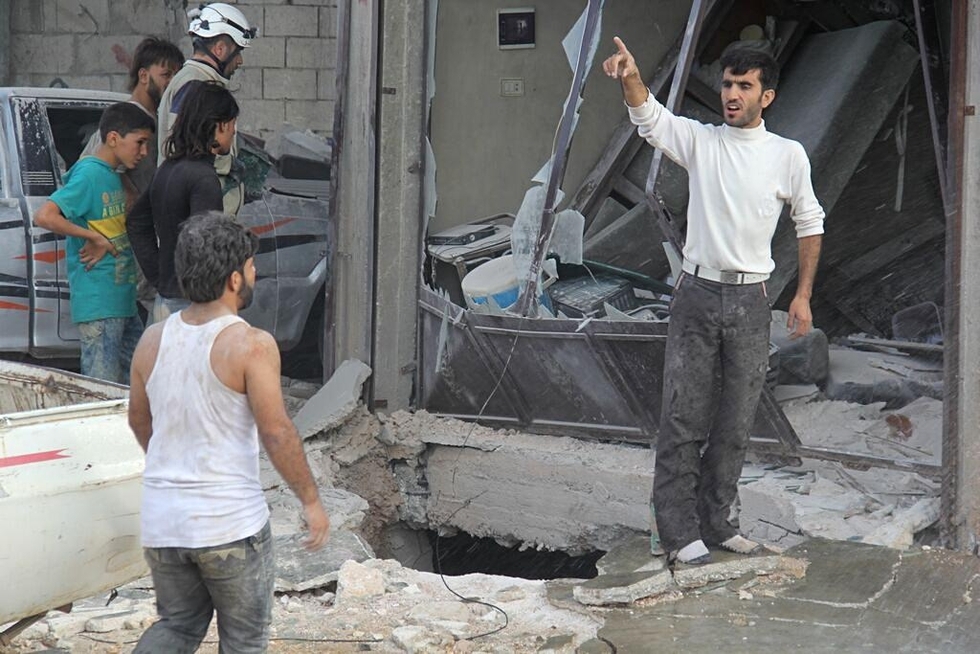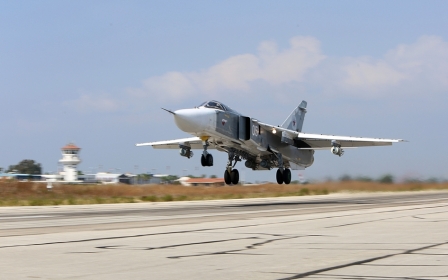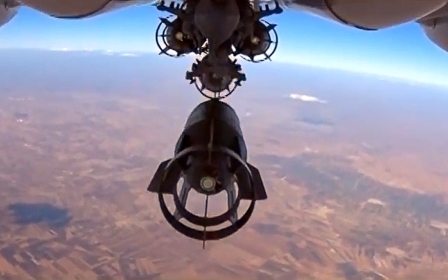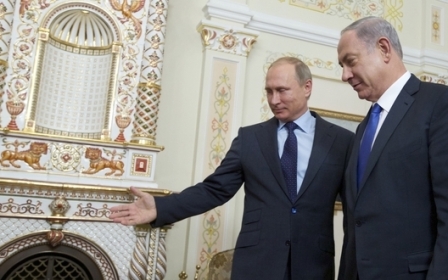Russia sends missiles 1,500km to Syria from Caspian Sea

Russia has fired missiles from its warships stationed in the Caspian Sea, hitting targets almost 1,500km away in Syria, officials said on Wednesday.
The bombardment was the first to involve Russia’s navy since Moscow’s decision to militarily support Syrian President Bashar al-Assad a week ago.
Russian President Vladimir Putin said that the missiles “destroyed all the planned targets”.
Hezbollah television, which supports Assad and his government, has also said that ground troops have launched an offensive under Russian air cover, although it is unclear whether the naval strikes were supportive of the new drive.
The Syrian Observatory for Human Rights said that it had seen "the most intense fighting in months" in central Syria's Hama and Idlib provinces.
Russian Defence Minister Sergei Shoigu said on Russian television that 26 missile strikes have launched from four warships. He claimed that only IS-controlled areas were targeted and that the missiles were not fired on civilian areas.
However, opposition forces on the ground have lashed out at the claims, saying that they have been the prime focus of the strikes.
Turkey has also criticised Russia. Earlier on Wednesday, Prime Minister Ahmet Davutoglu said only two out of 57 Russian strikes had targeted IS.
Syria’s official Syrian Arab News Agency said that 40 al-Nusra Front fighters were killed and 65 others were injured near Aleppo. It did not specify whether the government strikes or Russian air raids were responsible for the casualties.
The Syrian government considers all opposition fighters as "terrorists". The Russians suggest that it employs a much broader mandate than the US-led anti-IS coalition.
"If it looks like a terrorist, if it acts like a terrorist, if it walks like a terrorist...it's a terrorist" Russian Foreign Minister Sergei Lavrov said last week.
According to the Pentagon, coalition aircraft have been re-routed on at least one occasion to avoid Russian warplanes over Syria.
"We have an instance, at least, where there's been action taken to make sure we didn't have an unsafe separation" distance, Navy Captain Jeff Davis said on Wednesday.
Middle East Eye propose une couverture et une analyse indépendantes et incomparables du Moyen-Orient, de l’Afrique du Nord et d’autres régions du monde. Pour en savoir plus sur la reprise de ce contenu et les frais qui s’appliquent, veuillez remplir ce formulaire [en anglais]. Pour en savoir plus sur MEE, cliquez ici [en anglais].




